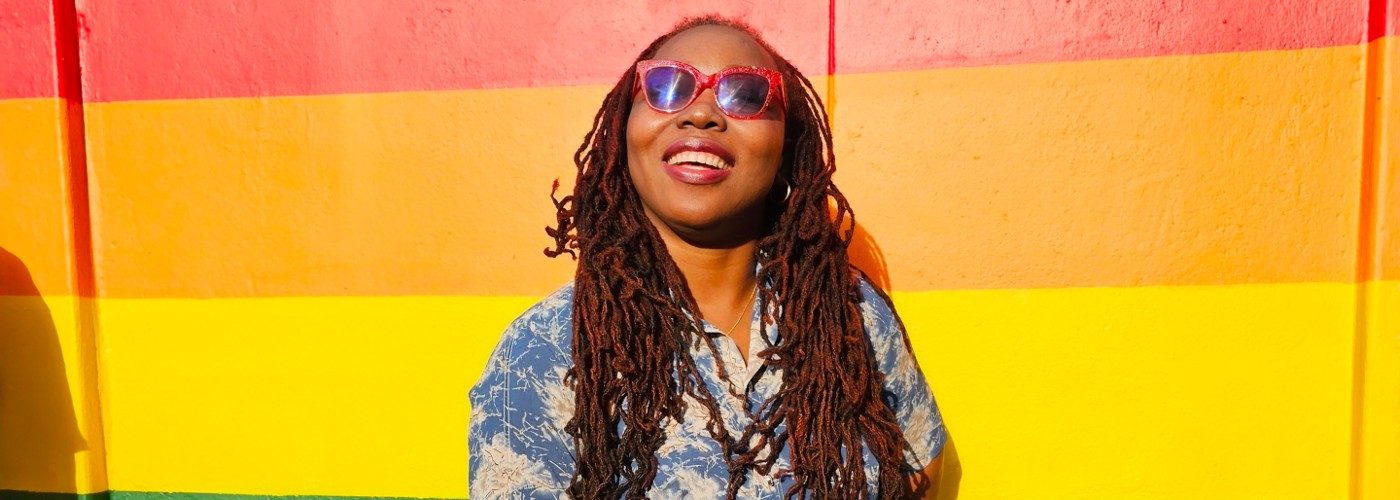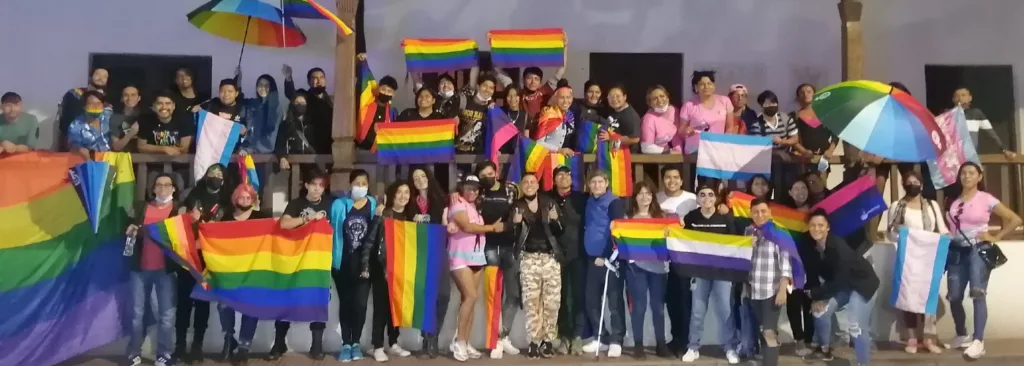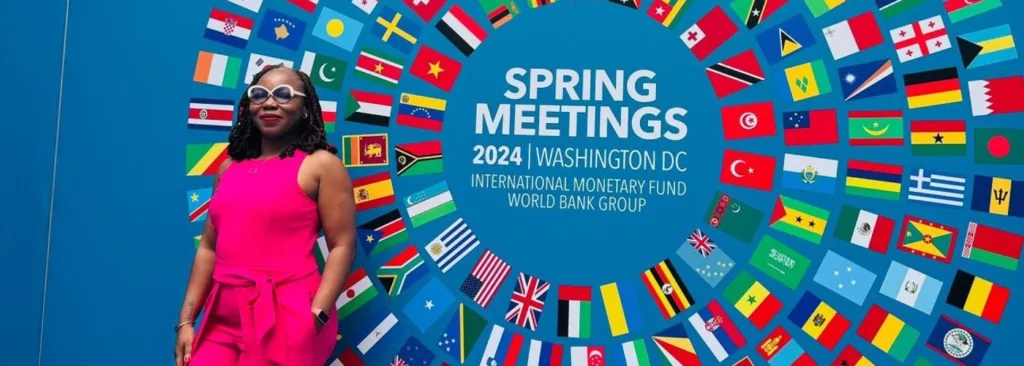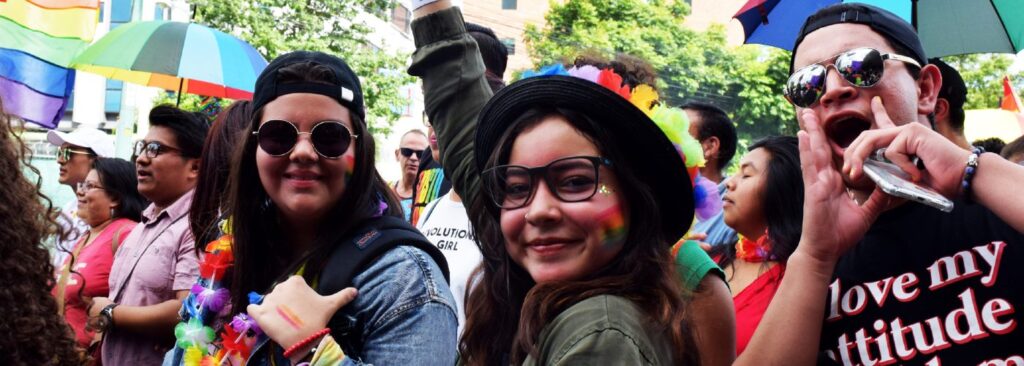Chioma (she/her) works in Nigeria for our Free to be Me program, which supports the socio-economic inclusion of the LGBTIQ+ community in 12 countries. A large public Pride is unthinkable in Nigeria, she says.
Is Pride celebrated in Nigeria?
“Here in the capital Lagos, we almost never have major events. Sometimes Pride is celebrated behind closed doors, but a public Pride is too risky. Nigeria is very conservative when it comes to rights and freedoms of LGBTIQ+ people.”
What is the current status of LGBTIQ+ rights in Nigeria?
“Homosexuality is a criminal offense, and LGBTIQ+ people’s rights aren’t protected. Our communities have always faced discrimination and violence. This has only worsened since a law was passed in 2014 banning same-sex marriage.”
“It’s really hard to be queer here. Last year, a trans woman was arrested by the police for something minor that would normally only get a fine, but she’s been in custody for six months now. LGBTIQ+ and trans people in particular are constantly arrested and then have to wait months to go to trial.”
“And it doesn’t look like this will get any better soon. A strict anti-LGBTIQ+ law was passed in Ghana at the beginning of the year that has consequences for all of West Africa. It’s become extremely unsafe for queer people.”
What does Pride mean to you?
“For me, as an African and Nigerian, pride means living with dignity and being able to be who you are. To have the right to exist and to live all your identities. Black, African, woman, queer. That’s who I am and that’s what Pride means to me.”
If you could do what you wanted, how would you prefer to celebrate Pride?
“More exuberantly and openly. It doesn’t necessarily have to be a parade through the streets. As long as you can be completely yourself, no matter how you celebrate.”
How does Hivos contribute to LGBTIQ+ rights in Nigeria?
“At Free to be Me, we’re committed to creating equal opportunities and rights for LGBTIQ+ people. We support organizations and movements that are at the forefront of that struggle here. Hivos also provides immediate help for LGBTIQ+ activists with its Bessy Ferrara emergency fund. For example, in the form of safe shelter or legal support. Unfortunately, both forms of support will still be desperately needed in the years to come.”




